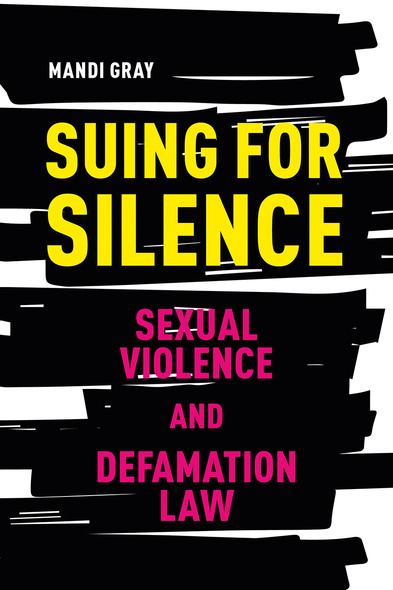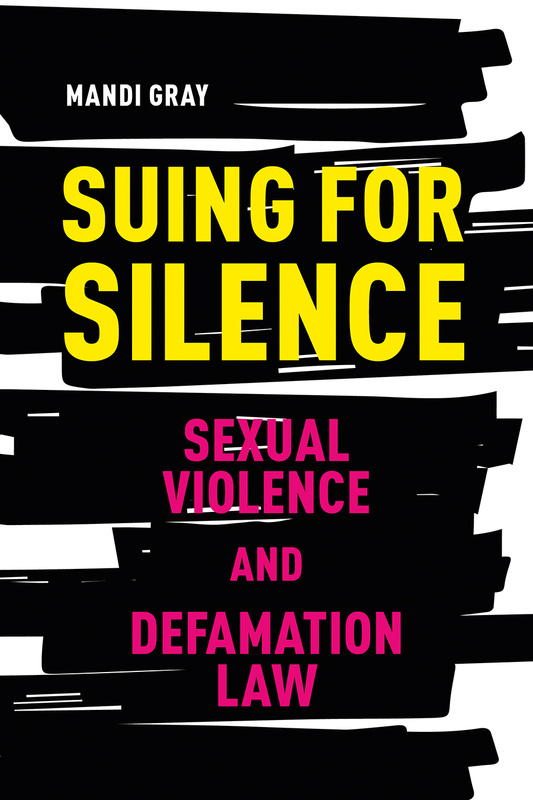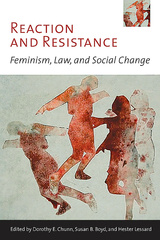
Suing for Silence
Sexual Violence and Defamation Law
The arrival of the #MeToo movement was long overdue, putting sexual violence in the spotlight and opening up public discussion of the problem. It also sparked a global anti-feminist backlash. Suing for Silence is a groundbreaking examination of how abusive men use defamation lawsuits as a weapon against anyone who attempts to hold them accountable.
As Mandi Gray demonstrates, Canadian defamation law is being employed to silence survivors and advocates who speak out about sexual violence, perpetuating the myth that false allegations are common. Gray draws on media reports, courtroom observations, and interviews with silence breakers, activists, and lawyers from across Canada to examine the impact of so-called liar lawsuits on those who report or are thinking of reporting sexual violence, and on public discourse. Her meticulous work reveals the gendered underpinnings of defamation law, which has long protected men’s reputations at the expense of women’s sexual autonomy.
Suing for Silence argues that such suits ought to be recognized as Strategic Lawsuits against Public Participation (SLAPPs), whose purpose is not to achieve justice but to intimidate, silence, and drain the financial and emotional resources of those who speak out against sexual violence and even report their own assaults – and to discourage others from doing the same. Sexual violence discourse must have adequate protection if it is to be heard.
Researchers in socio-legal studies, victimology, law, psychology, and sociology will find this a powerfully convincing work. It will also be invaluable to lawyers specializing in defamation and sexual violence litigation, survivors of sexual violence, feminist activists, sexual assault centre workers, and policy and lawmakers.
Suing for Silence raises critical points about defamation lawsuits against people, mostly women, who publicly discuss sexual violence.
This book is essential reading for survivors to make an informed decision about breaking the silence, but it’s also imperative for anyone who has ever wondered, ‘Why didn’t she speak up?’
Gray’s timely title is an important wake-up call to recognize a phenomenon that, left unchecked, could seriously impair public discourse around such a critical issue. Her rigorous work expertly combines sociological research, political analysis, legal explanation, and personal testimonies.
Mandi Gray has produced an intriguing and original book based on strong feminist research. Suing for Silence provides a complex analysis of defamation lawsuits as backlash against accusations of sexual violence and the harms of these strategies for the individuals involved, for survivors who have yet to come forward, and for society at large.
In a clear and accessible way, Mandi Gray sets out the legal context and the impact of the defamation litigation being used to stifle survivors, their allies, and the broader public discourse on sexual violence. Suing for Silence is an important exploration of this phenomenon, providing a foundation for further study and understanding.
Mandi Gray is an assistant professor in the Department of Sociology at Trent University and an anti-violence activist. She is regularly featured in Canadian media on issues pertaining to sexual violence, including in the Toronto Star, Globe and Mail, and Toronto Life, and on the CBC.
Preface
Introduction
1 A Civil Law Primer
2 The Gender of Reputation
3 Sick and Silenced
4 Campus Sexual Violence
5 Is Anti-SLAPP Legislation the Answer?
Conclusion
Notes; Selected Bibliography; Index









